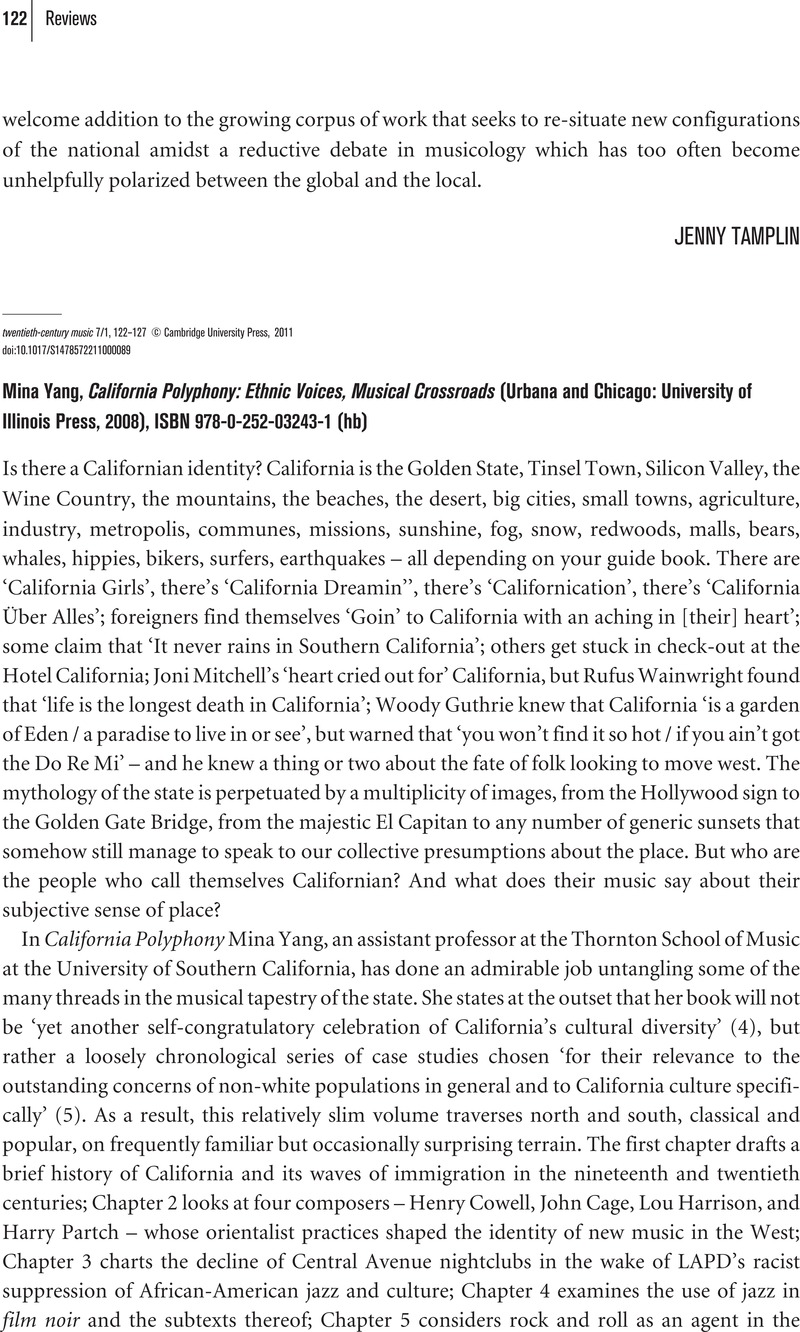No CrossRef data available.
Published online by Cambridge University Press: 04 August 2011

1 For an exhaustive history of California see Kevin Starr's monumental and still ongoing multi-volume series, Americans and the California Dream (New York: Oxford University Press, 1973–).
2 Notably Hubbs, Nadine, The Queer Composition of America's Sound: Gay Modernists, American Music, and National Identity (Berkeley: University of California Press, 2004)Google Scholar , and Miller, Leta and Lieberman, Fredric, Lou Harrison: Composing a World (New York: Oxford University Press, 1998)Google Scholar .
3 I defer to Harrison's learned friends at the University of California Santa Cruz to pursue this connection further.
4 Much of this material is covered in detail elsewhere, notably in DjeDje, Jacqueline Cogdell and Meadows, Eddie S. (eds), California Soul: Music of African Americans in the West (Berkeley: University of California Press, 1998)Google Scholar .
5 For example, George Lipsitz's work on Chicano identity in Los Angeles; see his ‘Cruising Around the Historical Bloc: Postmodernism and Popular Music in East Los Angeles’, Cultural Critique 5 (1986), 157–77, and Dangerous Crossroads: Popular Music, Postmodernism, and the Poetics of Place (New York: Verso, 1994).
6 Again, the perfect point to mention an LA band such as Ozomatli, or, in a united-California kind of move, to look a bit further north and note the early-1990s formation of the Disposable Heroes of Hiphoprisy.
7 To pound home the point about Hollywood not necessarily serving as the best gauge of ‘true’ Californianness, I feel oddly compelled here to remark that Tom Cruise, star of Collateral, could no more speak to my life in Oakland than I could speak to the tenets of Scientology.